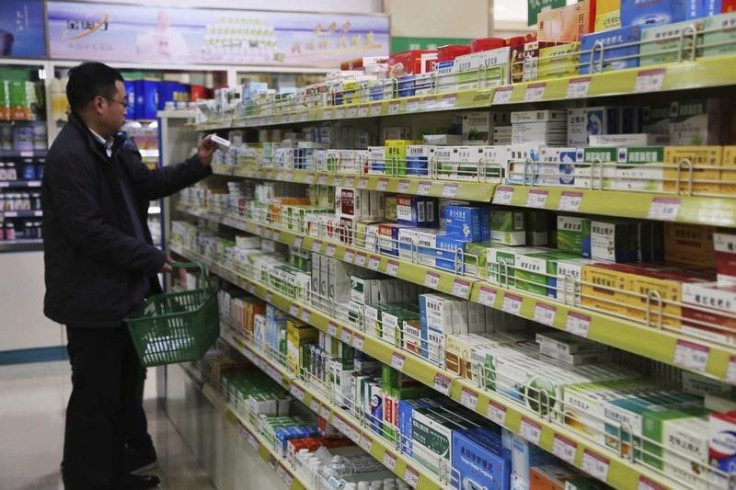China to allow online sales of prescription drugs as early as this month: sources

SHANGHAI (Reuters) - China will allow online sales of prescription drugs as early as this month, a policy that will open up an over 1 trillion yuan ($161 billion) market to online pharmacy operators like Alibaba Group Holding Ltd and Wal-Mart Stores Inc.
The China Food and Drug Administration (CFDA) is finalising which prescription medicines to approve for sale, a senior healthcare policy adviser told Reuters.
The policy would help reform a fragmented and opaque market controlled by state-run distributors and hospitals, brought into the spotlight last year by a bribery case which saw drugmaker GlaxoSmithKline PLC fined nearly $500 million.
"The policy will be released in January or February and the CFDA is actively working on it," said the adviser, who was not authorised to speak with media on the matter and so declined to be identified.
Hospitals currently account for around 70 percent of drugs sold to consumers. Among retailers, online pharmacies are restricted to selling over-the-counter medicines and healthcare products such as cough remedies and vitamin tablets.
The new policy could eventually allow online retail pharmacies such as Alibaba Health Information Technology Ltd and the pharmacy platform of JD.com Inc to wrest sales from hospitals.
Frank Zhao, chief financial officer at pharmacy chain China Jo-Jo Drugstores Inc, said the CFDA had was reviewing the list of prescription drugs for sale online.
"It may be a couple of days or weeks before the final list," he said.
ONLINE WINNERS
Pharmacies with an online presence, such as U.S.-listed Jo-Jo Drugstores and China Nepstar Chain Drugstore Ltd, as well as general online retailers also stand to benefit. Marketplaces Alibaba and JD.com already have licences to sell over-the-counter drugs online, as does U.S. retailer Wal-Mart.
Initially, online prescription drug sales are likely to be business-to-business (B2B) before spreading to retailers. The potential size of the B2B drug market ranges from 300 billion yuan to as much as 800 billion yuan, according to Deutsche Bank.
At risk could be offline middlemen such as Sinopharm Group Co Ltd, Shanghai Pharmaceuticals and China Medical Systems Holdings Ltd.
It will take considerable time for companies and consumers to get used to the new model, said Jo-Jo Drugstores' Zhao, adding the policy would allow his firm to expand significantly online. In the U.S., around a third of drugs are sold online compared with almost zero currently in China, Zhao said.
Drugs sold online may be up to 10 percent cheaper than those sold through traditional channels, analysts say.
"The government has a common theme - to improve quality of care for the masses and at the same time contain costs," said Andrew Chen, head of PwC's China Consulting Healthcare practice. "So, the e-pharmacy side is definitely going to be a trend."
($1 = 6.2092 Chinese yuan renminbi)
By Adam Jourdan
(Additional reporting by SHANGHAI newsroom; Editing by Christopher Cushing)
Published by Medicaldaily.com



























